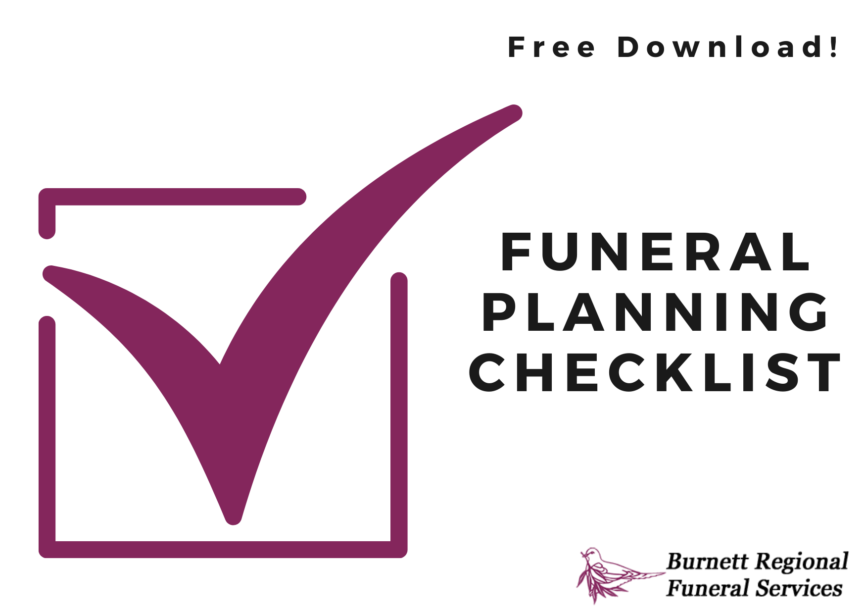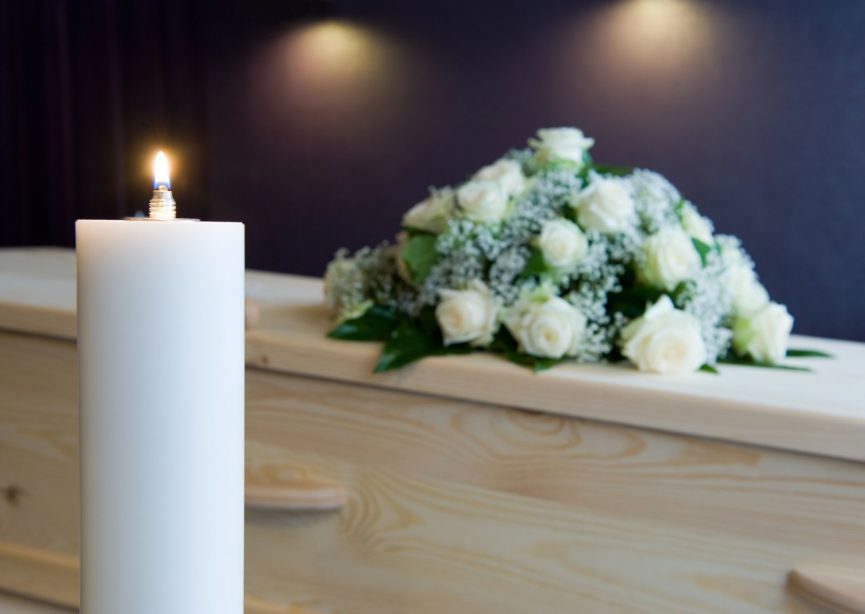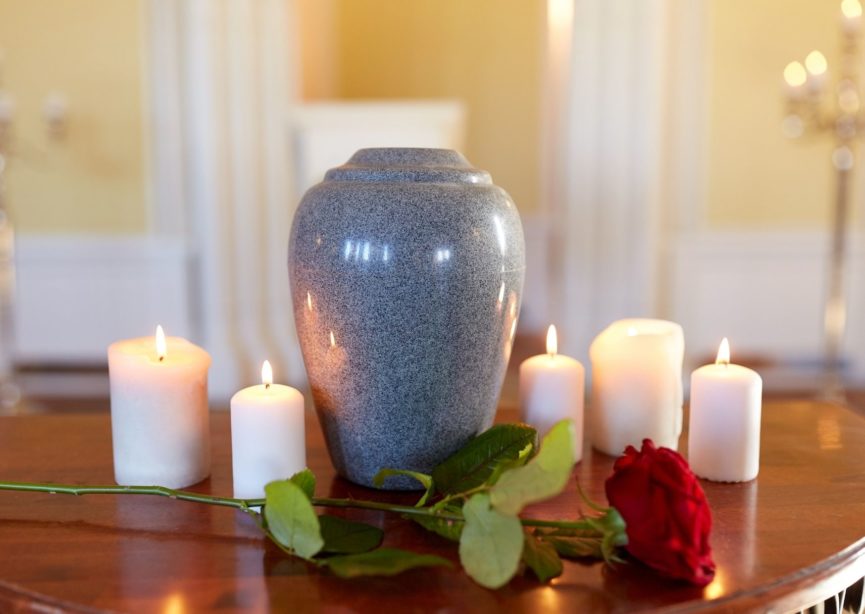Today we have a handy free download for you. We know how stressful it is planning a funeral – it is one of the most difficult and overwhelming things you will ever face in life. We’ve created this funeral planning checklist for you to help you to go through what you need to do, step by step. There are no catches – you don’t have to sign up to anything, you won’t get added to any email lists. We wanted to make this as simple and accessible as possible, so all you need to do is click on the button below and hit download.
From funeral to death – what happens when someone dies
One of the most overwhelming and emotional times of your life is losing a person that you love. It doesn’t matter whether or not their death is expected – it is still a shock. Once you get pass the shock, the overwhelm sets in. Most people have no idea what they should do when someone dies, so in this week’s article we’d like to explain a little bit to you about what happens and how we help you. Burnett Regional Funeral Services is here to help, 24 hours a day, 7 days a week. It may be that funeral arrangements have already been started, particularly if your loved one’s death was expected. In this situation, all you need to do is notify us of the death, and we will get started on taking those arrangements forward for you. If no plans have previously been put in place, that’s okay. Call us and we will walk you through the process. We are here for you every step of the way, and please rest assured that your loved one will be treated with the utmost dignity and respect while in our care. Within the first 24 hours after a death, we make arrangements to take the deceased into our care and we will also arrange a time and place for our initial meeting with you. We will discuss both of these things during our initial conversation with you. Meetings happen where you are comfortable. This is usually at your home, but can also be at our office. What does the funeral director do? Our job as the funeral director is to do everything we can to ease the stress on you, and to take care of all of the funeral arrangements. It is important to us that your and your loved ones wishes are respected, and that their life is celebrated as they would have wanted. After our initial conversation, we will arrange for the body to be transferred into our care, even if your loved one has passed away out of town, in a different state or overseas. We will liaise with the cemetery or crematorium on your behalf, organise the service, liaise with the celebrant or clergy, work with florists, make all necessary arrangements with the church, chapel or venue of your choice, register the death of your loved one, collect the relevant medical paperwork and dispatch as necessary, supply the hearse, collect floral and other tributes on your behalf, prepare the deceased for viewing, organise any required advertising, source music for the service, prepare slideshows if required and provide memorial attendance books for friends and family to sign. We can also refer you to grief counselling services if you feel this would be beneficial. Our initial meeting Our initial meeting with you will most likely last approximately one hour, and during this time we will help you to make several important decisions about the funeral. We will also go through everything needed to register the death, which we will … Read More
How to write a eulogy
Being in a position to give a eulogy about a loved one you have lost is a huge responsibility, but it’s also a huge honour. If you have to write a eulogy but you don’t know where or how to start, then read on! This article will walk you through how to write a moving eulogy, things to avoid and how to get through delivering your eulogy at the funeral. What is a eulogy? A eulogy is a spoken tribute to someone who has passed away and is given at their funeral or memorial service. There are no set rules regarding who should give the eulogy at a funeral. It can be given by a spouse, son or daughter, grandchild, sibling or even a friend. As for who decides who gives the eulogy, the deceased may have decided who they want to do it before they passed, you may be asked by a family member, or it could fall to you by default. Sometimes people also volunteer to give a eulogy. What makes a good eulogy? The most important thing to remember when writing a eulogy is that it should capture the essence of the person it is about. It is a final farewell to the deceased person, and a celebration of their life. A good eulogy will make feel like the person is there in the room with you, bringing the person to life in the minds of the congregation. It should be heartfelt, meaningful and honest. The average eulogy is 3 – 5 minutes long, and written with both the deceased person and the audience in mind. Big words and grand statements have no place in a eulogy; keep the tone conversational and use simple, easy to understand language. How do I start writing a eulogy? Writing a eulogy might not be the easiest of tasks, but it is an important part of preparing for the funeral that should not be left until the last minute. Start off with a brainstorming session and think about the person you will be speaking about. What kind of person where they? What were they known for? Who is their family and who are they survived by? What were their notable achievements? Give specific examples of what your loved one was known for. For example, if they were known for their sense of humour, you might like to include an anecdote of something that demonstrates this, such as a particularly funny April Fool’s joke! Decide on the tone of the eulogy you want to deliver. Remember, a eulogy doesn’t have to be sad and mournful. Depending on the person it is celebrating, it could have elements of humour or be uplifting and inspiring as well as being sad. Now it’s time to start writing. If the officiant does not introduce you, ensure you start by introducing yourself and explain your link to the deceased person. Remember, a eulogy does not have to follow the chronological order of your loved ones life. You … Read More
What is direct cremation?
Unlike traditional funeral services involving a church service and procession to the graveside, a direct cremation is a cremation without a funeral. Also known as unattended cremations or no service cremations, Covid-19 has caused direct cremations to rise sharply in popularity over the past year. Direct cremations are a budget friendly option for cremating a loved one who has passed away, and while you may worry you are disrepecting your loved one, you need not, as a direct cremation allows for you to plan a memorial after the cremation has taken place. How much does a direct cremation cost? The good news is that direct cremations offer an affordable alternative to traditional funerals. Often a traditional funeral can be a costly undertaking, however the cost of a direct cremation is limited to transportation coss, crematorium fees, registration of death and other paperwork and the return of the ashes to the next of kin. Traditional funerals are much more expensive because the cost includes the funeral director’s time in arranging the funeral, mortuary care fees, transport, church fees, catering and multiple transportations of the body. What is the benefit of direct cremation? There are many benefits of direct cremation. Although many people still prefer to take the path of a traditional funeral, direct cremations are a more economical option, and they eliminate the stress of planning a funeral during times of deep distress and grief. Many people choose to honour their passed love one by planning a memorial to take place after the direct cremation, rather than dealing with the extreme emotional stress of planning a funeral service within a matter of days following the death. Planning a memorial after a direct cremation A memorial following a direct cremation allows you a greater degree of flexibility and creativity in how you choose to say goodbye to your loved one – you may decide to choose a location that was special to the deceased person, include more personal touches than a traditional funeral would allow for or you may include an ashes scattering ceremony as part of the post cremation memorial service. We will share some ideas for planning a memorial after direct cremation on our blog and our Facebook page in the coming weeks. Final thoughts… We hope this article about direct cremations has answered some of the questions you may have around what direct cremations are, how much they cost and what some of the benefits are. Please check out our services page or contact us for help in arranging a direct cremation in Gayndah, Biggenden, Mundubbera, Eidsvold, Monto and anywhere else in the North Burnett region or the surrounding areas.




